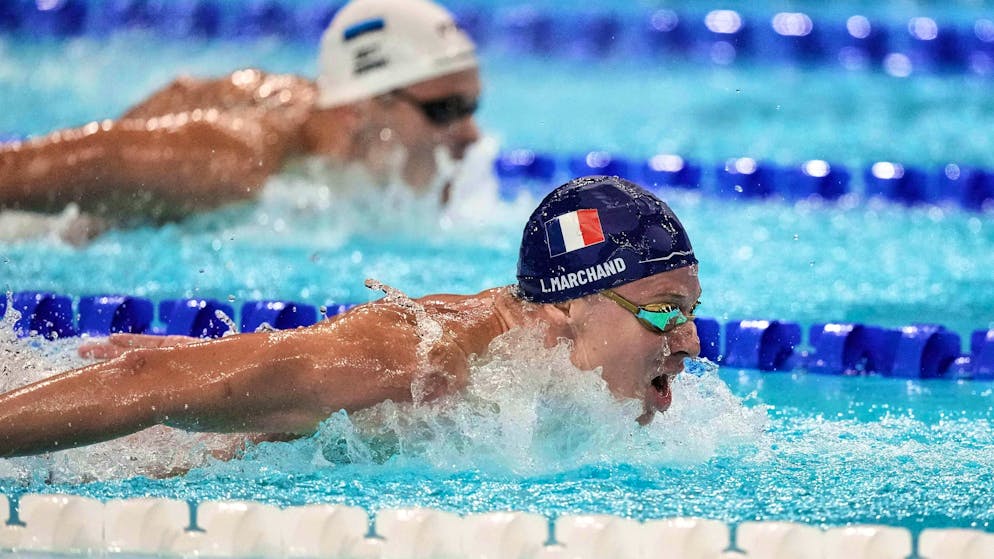
The swimmers in Paris are still a long way from setting new fabulous times. And that is unlikely to change. The reasons for the rather slow times in the Olympic pool.
No time? blue News summarizes for you
- The swimming times in Paris are remarkably slow, and the world record line has hardly been shown so far.
- The pool, which is only 2.15 meters deep, causes waves and turbulence that slow the swimmers down.
- Swimmers are sensitive to changes in the water, and the warm, turbulent water in Paris affects their performance.
The world record line - a well-known highlight of TV broadcasts of Olympic swimming competitions - has so far largely eluded fans in Paris. This is because the athletes are swimming far away from new best times. It was a completely different story at the last Games in Tokyo. The records tumbled by the dozen.
The slow times are surprising, but somehow not. Even before the start of the first competitions in Paris, there was talk of a "slow pool". However, what initially sounded like an excuse actually seems to be the case in the Arena La Défense. Nicolò Martinenghi won the 100-metre breaststroke final in the slowest time since Athens 2004, and even French superstar Léon Marchand beat his one-year-old world record in the 400-metre medley.

Depth and technique as possible causes
The Arena La Défense is a multi-purpose hall that is mainly used for rugby and concerts. For the Olympic Games, a mobile pool was built on the playing field, which has been common practice in swimming for years. However, this pool is only 2.15 meters deep - 15 centimetres more than the minimum. Most international competition pools are three meters deep. However, a deeper pool would have cost more space and grandstand capacity.
However, a shallower pool now leads to more waves and turbulence, which slows down the swimmers. There is also less space for the technical underwater equipment, which can also lead to slower times. "That's why you don't see any world-leading times or world records yet," says German national swimming coach Bernd Berkhahn. He is convinced that the swimmers in Paris would be faster even in the 1924 pool.
Hard and warm water
However, the turbulence is not the only thing that concerns the swimmers. The hardness of the water is also a much-discussed topic. Marek Ulrich, a German Olympic swimmer, explains to Spiegel: "Soft water feels smooth, as if I'm gripping a ball. My hand can grip it properly." Hard water, on the other hand, feels as if he is tearing it apart. In La Défense, he "lost the water a bit".
What's more, the water is not particularly cold, says Ulrich, who feels even the slightest differences in temperature directly. "At first, almost all pools have a hello-wake-up effect, but after a few meters at the latest, a pool that is 27 degrees instead of 26 degrees feels like a bathtub."







